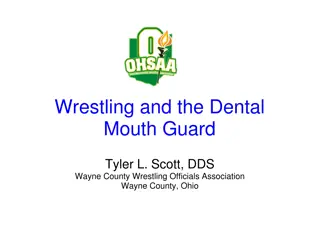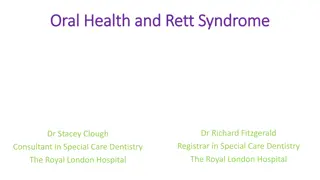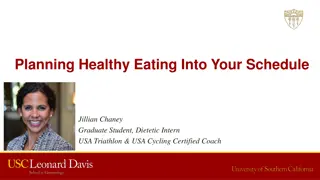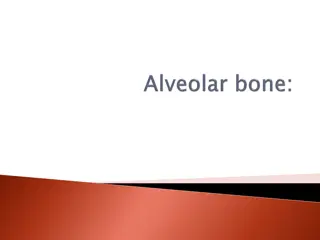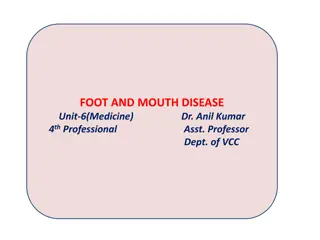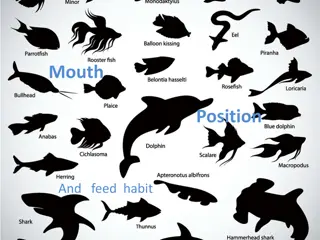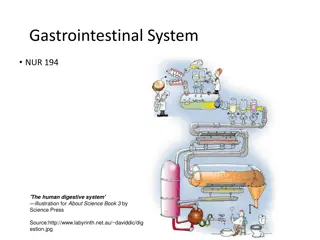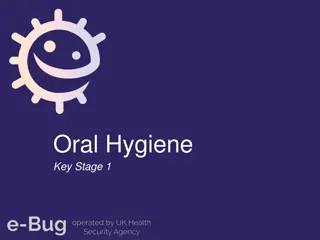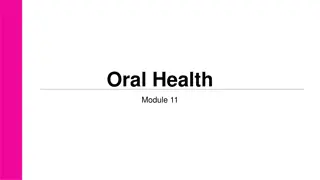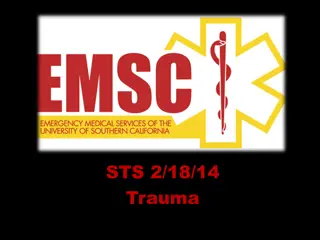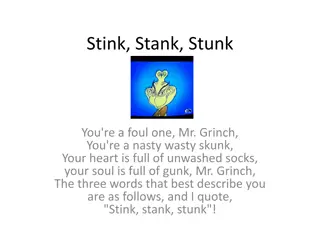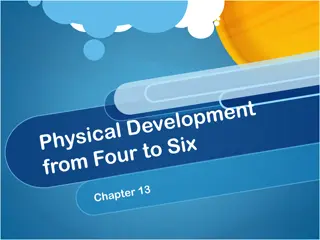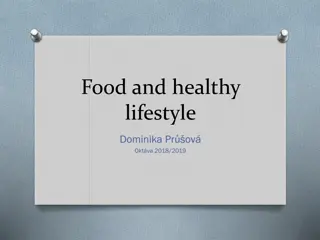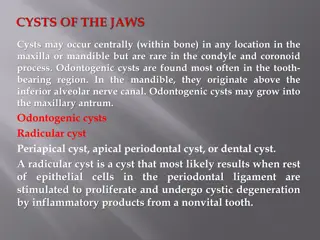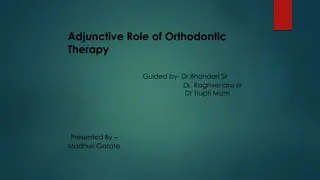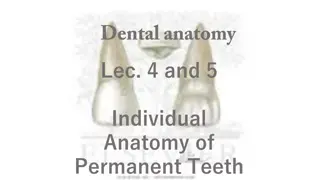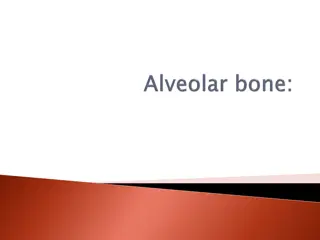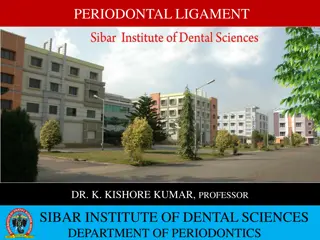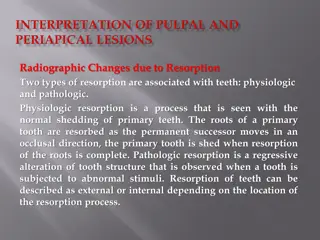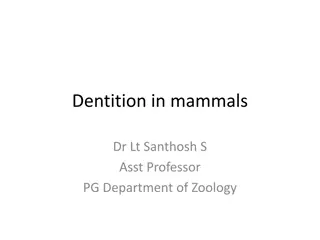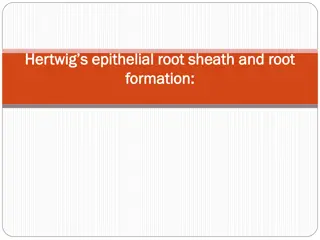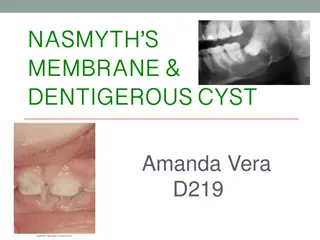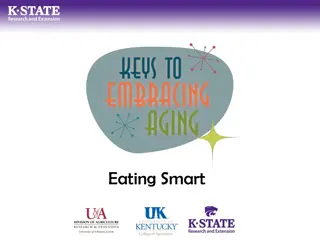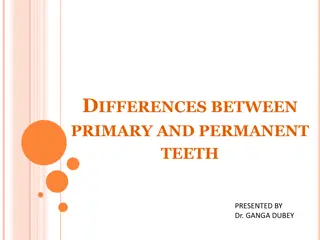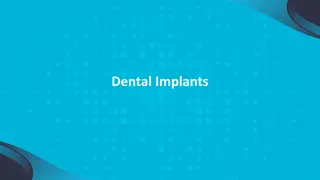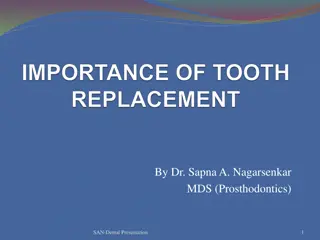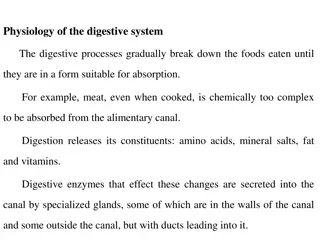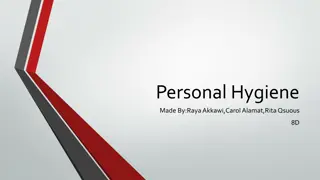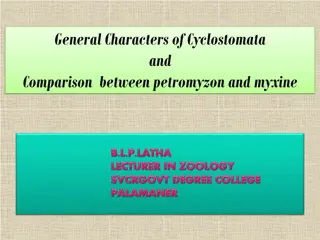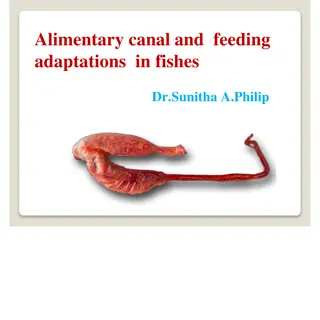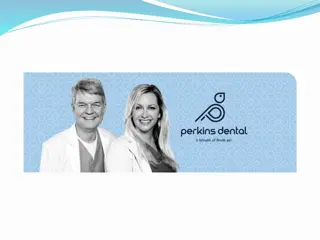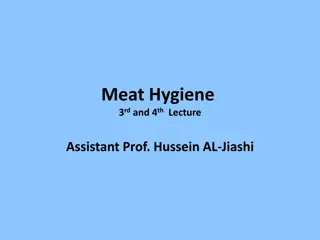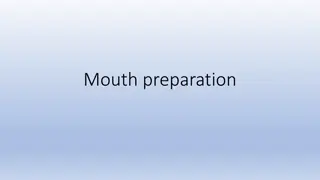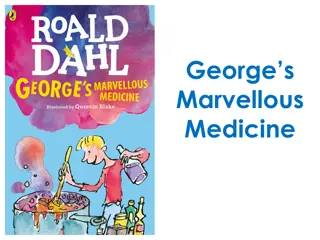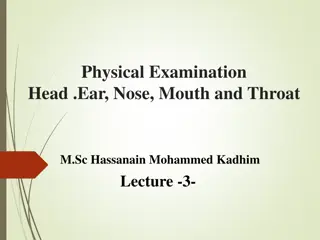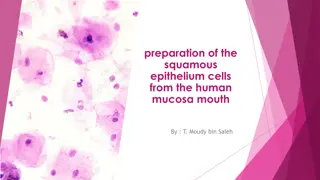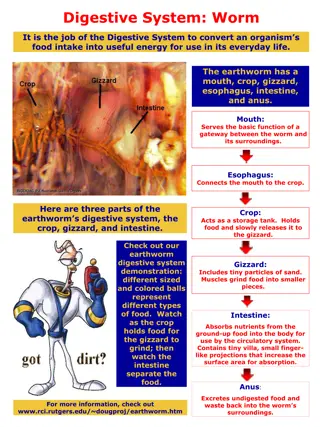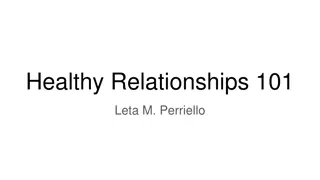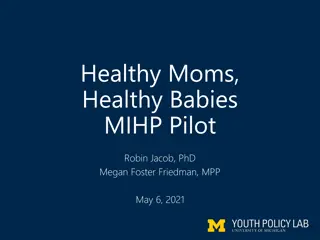Tips for Healthy Teeth and Mouth
Regular oral hygiene practices are essential for maintaining healthy teeth and gums. Proper brushing after meals, regular flossing, and a balanced diet can help prevent tooth decay caused by plaque buildup and bacterial growth. Understanding the parts of a tooth and the importance of good oral health habits can support overall dental wellness.
Download Presentation

Please find below an Image/Link to download the presentation.
The content on the website is provided AS IS for your information and personal use only. It may not be sold, licensed, or shared on other websites without obtaining consent from the author. Download presentation by click this link. If you encounter any issues during the download, it is possible that the publisher has removed the file from their server.
E N D
Presentation Transcript
September 27, 2016 Bell Ringer: make a list of ways to keep your teeth healthy. Circle the behaviors you engage in regularly. Put a star next to the ones you would like to improve. Chapter 14, Lesson 2 Objective: Identify the parts of a tooth; examine the effects of health behaviors on prevention of diseases of the teeth and mouth.
Words to know Periodontium: the area immediately around the teeth. Pulp: tissue that contains the blood vessels and nerves of a tooth Plaque: sticky, colorless film that acts on sugar to form acids that destroy tooth enamel and irritate gums (breaks down the enamel on teeth) Periodontal Disease: an inflammation of the periodontal structures Tartar: hard, crust like substance formed when plaque hardens
Parts of a Tooth Do you remember losing your teeth when you were younger, only to have new permanent come in? Have you lost all of your yet? The periodontium is made up of the gums, ligaments and jawbones. This supports the teeth and hold them in place. A tooth is made up of 3 main parts: crown, neck and root. The crown is visible portion of the tooth; covered with enamel. Beneath the enamel is dentin, a layer of connective tissue that contributes to the shape and hardness of a tooth which acts as a barrier to protect the pulp. The pulp extends into the root canal and provides nourishment to the tooth.
Healthy Teeth and Mouth Regular oral hygiene is necessary for healthy, clean teeth. One of the mian threats to the health of your teeth is the bacteria that inhabit your mouth and live on the sugar found in foods you eat. Plaque can coat your teeth, and as it does this, it prevents your saliva, which has the substances to protect teeth from bacteria, from reaching the tooth surface. In areas where plaque builds, bacteria thrives and the acids from the bacteria breaks down enamel. If this continues, a hole, or cavity, is formed in the tooth. If continued without proper treatment, you may have to get it pulled! PRACTICE GOOD ORAL HYGIENE! Brushing teeth after eating removes plaque from surface of the teeth, before bacteria can produce any acid to harm it! FLOSS TOO!
Tooth Decay Prevention Tooth decay can be prevented by: Brushing after every meal Flossing regularly Eating a well balanced diet
Health Minute! How to properly brush your teeth! 1- hold the bristle tips at a 45-degree angle against gum line 2- brush back and forth in short strokes.. BE GENTLE! 3- brush the outer surface of each tooth, the inner, and then chewing surfaces 4- clean the inside surface of the front teeth, tilt the brush vertically and make up and down strokes 5- floss not only between the surface of each tooth but also beneath the gum line. Sing Happy Birthday in your head and once it is done, you are done!
Brain breaks! Question: Railroad crossing, watch out of cars. Can you spell that without any r s ? After: Line up in order of first name in Alphabetical order (A to Z) WITHOUT talking!
answer T-H-A-T
Healthy Teeth and Mouth Contd Regular visits to a dental care professional are the next most important part of maintaining dental health. These professionals will clean your teeth and examine them for any possible cavities. Following a well-balanced diet that includes food containing phosphorus, calcium and vitamin C helps keep your teeth STRONG and your gums HEALTHY! Reduce the # of sugar snacks between meals Avoid tobacco products (what could this increase the chances of if used?)
Problems of the teeth and mouth Halitosis (bad breath) can be from eating certain foods, poor oral hygiene, smoking, bacteria on the tongue, decayed teeth or gum disease. Treatment by a dental professional is needed. Malocclusion (bad bite) sources of this include extra teeth, crowded teeth, and the misalignment of the upper and lower jaws. It can lead to decay and disease, and it can affect a person s speech and ability to chew. Some can be corrected by braces.
DID YOU KNOW Fluoride has been found to be an effective way to reduce tooth decay. Fluoride can be applied to teeth in several ways: Many communities add fluoride to water supplies. Brushing twice a day with a fluoride toothpaste applies fluoride directly to the teeth Fluoride treatments can be applied directly to teeth in a dental office or be prescribed for home use
Study Guide http://www.glencoe.com/sec/health/gh2005/student/flash2.php/tx/14b/eng


